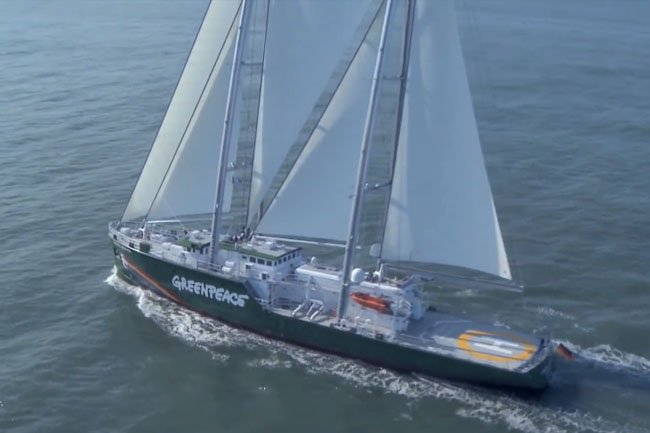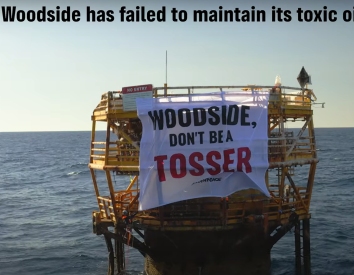While the majority of Australian telecommunication companies have committed to 100% renewable energy by 2025, Optus is yet to join them, writes David Ritter.
Sometimes, within an economic sector, a single company can find itself in the unwanted position of being the odd one out. This is the current position that Optus finds itself in, within the Australian telco sector.
Optus – the brand actually owned by Singapore Telecom Australia Investments Pty Ltd – is the only one of Australia’s three big telco brands not to have committed to sourcing all its electricity from renewable sources by 2025 or sooner. This is creating a clear point of market differentiation between Telstra and TPG Telecom on the one hand and Optus on the other. This is also creating a clear reputational risk for the latter.
Both Telstra and TPG Telecom have now committed to powering all of their Australian operations with renewable energy and to avoid buying power generated by dirty coal-burning power stations. In so doing, they have got ahead of the game — and left Optus languishing.
Telcos are highly significant energy users and have been significant sources of the greenhouse gas emissions that are driving dangerous climate change. All of those convenient services and platforms provided by telcos require energy and it is vital that this comes from renewable sources, as part of Australia’s rapid transition away from dirty polluting fossil fuels like coal, oil and gas that are the number one drivers of climate change. According to the national Clean Energy Regulator, Telstra, Optus and TPG Telecom are all among the top 100 largest corporate energy users in Australia.
Optus is further exposed because Telstra was the first to move, despite having substantially larger energy needs. Telstra made the commitment to switching to 100% renewable electricity by 2025 in March 2020 and despite the disruption of the COVID-19 pandemic, has been able to make significant progress towards its goal. Most recently, Telstra announced a new power purchasing agreement with Global Power Generation to buy from the Crookwell 3 wind farm in Goulburn, which is due to begin producing in 2023.
TPG Telecom – which owns Vodafone – followed with its own commitment to achieving 100% renewable electricity by 2025 in April.
Trent Czinner, TPG Telecom Group Executive, Legal and External Affairs told Greenpeace last week that making the switch to renewables was a logical move for his company:
“We made the move to be powered by 100% renewable electricity because it’s the right thing to do and to meet the growing expectations of our customers, employees and the wider community. We’re very proud to be on this journey to be a more sustainable business.”
An overall snapshot of who is leading in the telco, tech and I.T. race to renewables in Australia is set out in a Greenpeace briefing released last week. The paper plainly highlights the extent to which Optus is now a clear laggard.
There is now a steady progression of major Australian businesses declaring their commitment to power all of their operations only by renewable energy from 2025 or sooner. I’ve had numerous conversations with heads of company, executives and managers working in these firms over the last 18 months and one of the clear themes that has emerged is the relationship between making the transition to renewable energy and trust in the brand.
Outside of the telco sector, it is perhaps no coincidence that Australia’s top four most trusted brands – Coles, Woolworths, Bunnings and Aldi – have all committed to 100% renewable-powered electricity across all their Australian operations by 2025 or sooner. In the case of the latter, Aldi promised to have all its 570 Australian stores powered by renewable energy by the end of 2021 — and yesterday announced that it has achieved this aim six months ahead of schedule.
So, where does all of this leave Optus? Clearly, there are some decisions to be made for Kelly Bayer Rosmarin’s team.
In a recent speech, the Optus CEO asked rhetorically:
“As the conduits of connectivity, the enablers of today’s most revolutionary tech, we must ask ourselves are we relevant to 2030’s customers?”
There’s an equally good question for Optus to ask about the expectations of today’s customers. The choice for the company is stark: join the forward-looking renewables club, which already includes not only Optus’ two main competitors but also the four most trusted brands in Australia and a range of other household name businesses. Or go it alone, continuing to buy power from the dirty, polluting coal-burning power stations.
David Ritter is CEO of Greenpeace Australia Pacific, adjunct professor at Sydney University and an honorary fellow of the Law Faculty at the University of Western Australia. You can follow David Ritter on Twitter @David_Ritter.
Related Articles
- PAUL BUDDE: Australians to pay for failed national energy policy
- Massive renewable energy projects underpinned by ICT technologies
- Major corporations rush towards clean energy commitment
- Australia could potentially waste another industrial boom
- Going backwards: Australia's renewable energy investment bucks world trend
 This work is licensed under a Creative Commons Attribution-NonCommercial-NoDerivs 3.0 Australia License
This work is licensed under a Creative Commons Attribution-NonCommercial-NoDerivs 3.0 Australia License
Support independent journalism Subscribe to IA.














